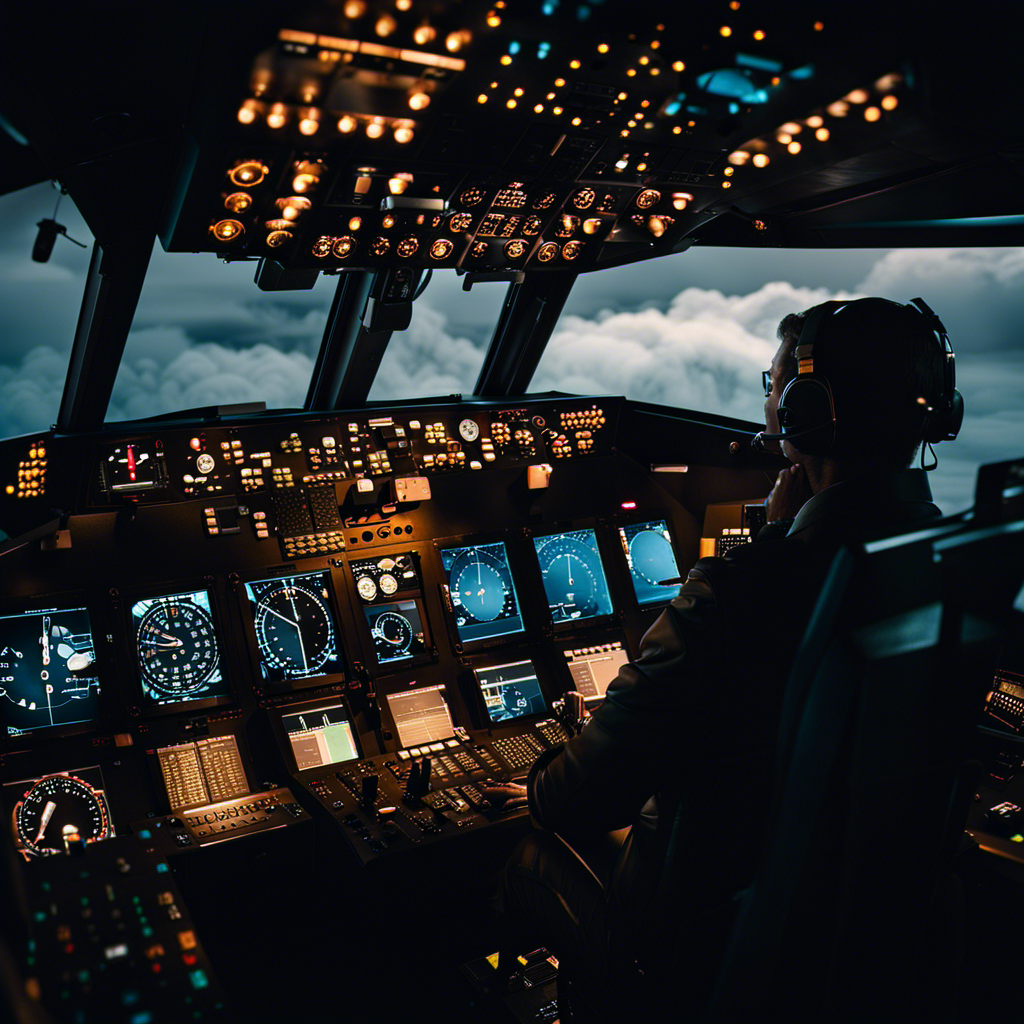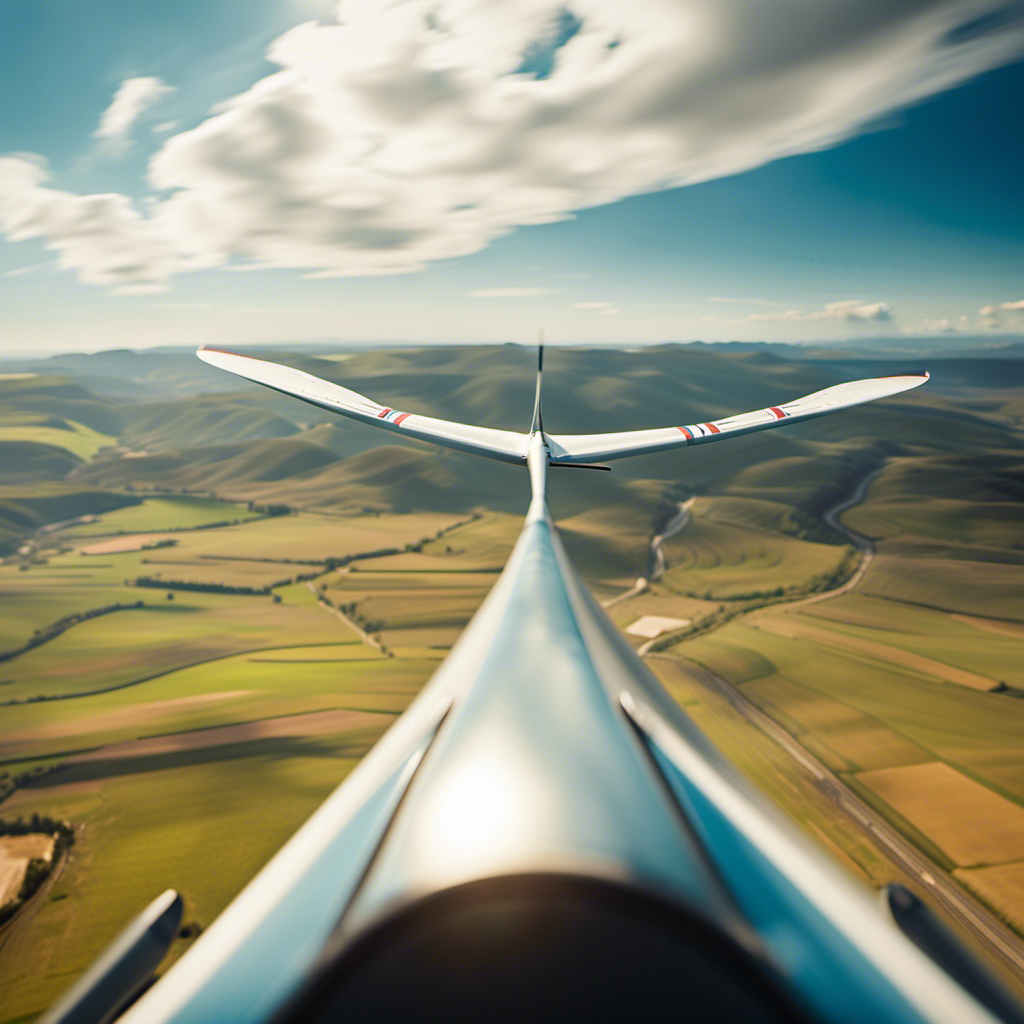Can you handle flying in the sky? Flying is not just any accomplishment; it’s like moving in sync with the wind, exploring the limitless skies.
But make no mistake, the journey is not without its challenges. From rigorous training to split-second decisions, a pilot’s life is filled with trials that test their mettle.
In this article, we delve into the hardest aspects of being a pilot, revealing the true gravity of their profession.
Key Takeaways
- Lack of sleep and fatigue can significantly impair a pilot’s cognitive abilities, reaction times, and decision-making skills, highlighting the importance of prioritizing rest to minimize fatigue-related errors.
- Pilots must navigate complex regulations and procedures set by regulatory bodies like the FAA or ICAO, requiring a deep understanding of aviation regulations, continuous training, and attention to detail to avoid non-compliance consequences such as grounding of aircraft, fines, or loss of license.
- Effective emergency handling and optimal performance are crucial for pilots, as split-second decisions are often required during emergencies, and managing fatigue proactively is essential. This ensures the safety of passengers.
- Balancing workload is essential in the aviation industry, as demanding schedules can lead to increased risks of errors. Effective communication with flight crew and proper workload management are necessary to reduce these risks.
Rigorous Training and Continuous Learning
The hardest thing about being a pilot is that you’re constantly undergoing rigorous training and you’re always learning.
As a pilot, you must possess a vast amount of knowledge and expertise in various areas such as aerodynamics, navigation, weather patterns, and emergency procedures.
It requires a strong commitment to continuous learning and staying up-to-date with the latest advancements in aviation technology and regulations.
You must constantly refine your skills through simulations, flight hours, and theoretical studies. This level of dedication and continuous training is necessary to ensure the safety of yourself, your crew, and the passengers onboard.
It is a demanding process that requires you to constantly push your limits and strive for excellence.
Maintaining focus and alertness during long flights is another crucial aspect of being a pilot.
Maintaining Focus and Alertness during Long Flights
Staying focused and alert during long flights can be challenging for you as a pilot. The combination of fatigue, monotonous tasks, and extended periods of concentration can lead to a decline in mental acuity. However, maintaining optimal alertness is crucial for ensuring the safety of the flight.
To help you stay focused, it is important to implement strategies such as proper sleep, regular breaks, and engaging in mental exercises. Additionally, utilizing tools like checklists, automation systems, and cockpit resource management can assist in reducing cognitive overload.
Managing Stress and Pressure in High-Stakes Situations
Managing stress and pressure in high-stakes situations can be challenging, but it is crucial for you as a pilot to stay focused and alert. The demanding nature of your profession often requires making split-second decisions that can have significant consequences.
To effectively manage stress and pressure, it is essential to rely on your training and experience. Take advantage of the techniques taught during your rigorous flight training, such as deep breathing exercises and mental visualization.
Additionally, maintaining a healthy lifestyle, including regular exercise and proper nutrition, can help you build resilience and better cope with stress.
By mastering stress management techniques, you can ensure that you are mentally and emotionally prepared to handle any high-pressure situation that may arise.
Transitioning to adapting to different time zones and jet lag, it is crucial for you to prioritize rest and recovery to maintain peak performance.
Adapting to Different Time Zones and Jet Lag
Transitioning to different time zones and dealing with jet lag can be challenging, but it is important for pilots to prioritize rest and recovery in order to maintain peak performance.
As a pilot, you understand the demands of constantly changing schedules and the toll it can take on your body. The disruption of your circadian rhythm can result in fatigue, decreased alertness, and impaired cognitive function.
To combat these effects, it is crucial to establish a consistent sleep schedule, avoid excessive caffeine and alcohol consumption, and engage in relaxation techniques such as meditation or deep breathing exercises.
Dealing with Unpredictable Weather Conditions
Being aware of your surroundings and staying updated on weather forecasts is essential when dealing with unpredictable weather conditions as a pilot. As you take to the skies, you must rely on your knowledge and experience to navigate through these challenging situations.
It is crucial to understand the various weather patterns and their potential impact on your flight. Thunderstorms, strong winds, and icing conditions can pose a significant threat to aircraft safety. By closely monitoring weather reports and utilizing advanced radar systems, you can make informed decisions to ensure a smooth and secure flight.
Ensuring the Safety and Security of Passengers
Ensuring the safety and security of passengers is your top priority during every flight. As a pilot, you possess the knowledge, technical skills, and experience necessary to handle this responsibility. You meticulously perform pre-flight checks, ensuring that the aircraft is airworthy and all safety systems are functioning properly.
Throughout the flight, you remain vigilant, constantly monitoring the aircraft’s systems and instruments, ready to respond to any potential issues. Your expertise allows you to make critical decisions swiftly and efficiently, always prioritizing the well-being of your passengers.
However, maintaining a healthy work-life balance is also crucial. Balancing the demands of your career with personal time and self-care is essential to your overall well-being and job performance. By managing your time effectively and setting boundaries, you can ensure that you have the energy and focus to continue prioritizing passenger safety in the skies.
Maintaining a Healthy Work-Life Balance
Maintaining a healthy work-life balance is crucial for pilots to prioritize their overall well-being and job performance. As a pilot, you understand the demands and challenges of the profession, but it’s essential to find a balance that allows you to excel both in the cockpit and in your personal life.
Here are a few key reasons why maintaining a healthy work-life balance is vital:
-
Reducing stress and burnout: Balancing your work and personal life helps prevent burnout and allows you to manage stress effectively.
-
Enhancing relationships: Spending quality time with loved ones strengthens relationships, fostering a support network that can help you cope with the demands of your job.
-
Promoting physical and mental well-being: Taking time for self-care, exercise, and relaxation improves overall health and mental clarity.
Handling Emergency Situations and Making Split-Second Decisions
When faced with emergency situations, you must be able to make split-second decisions to ensure the safety of everyone on board. As a pilot, you have undergone extensive training to prepare for these high-pressure moments. Your knowledge of aircraft systems, flight procedures, and emergency protocols will guide you in assessing the situation and determining the best course of action.
Whether it’s an engine failure, severe weather, or a medical emergency, your ability to stay calm and focused is crucial. You must rely on your experience and instincts to quickly analyze the situation, communicate with air traffic control, and execute the necessary maneuvers to minimize risks. Handling emergency situations requires a sharp mind and a steady hand, as every second counts in ensuring a safe outcome.
Transitioning into managing physical and mental fatigue, pilots must also maintain their alertness and mental acuity in order to effectively handle emergency situations.
Managing Physical and Mental Fatigue
Managing physical and mental fatigue is essential for pilots to effectively handle emergency situations and make split-second decisions. As a pilot, you must be aware of the impact of fatigue on your performance and take proactive steps to mitigate its effects. Here are four key considerations to keep in mind:
-
Sleep deprivation: Lack of adequate sleep can impair your cognitive abilities, reaction times, and decision-making skills. Prioritize getting enough rest before and after flights to minimize the risk of fatigue-related errors.
-
Workload management: Balancing the demands of a busy schedule can be challenging. Be mindful of your limits and communicate with your flight crew to ensure an equitable distribution of tasks.
-
Nutrition and hydration: Proper fueling of your body is crucial for maintaining alertness and focus. Stay hydrated and consume nutritious meals to sustain your energy levels throughout the day.
-
Regular breaks and exercise: Take regular breaks during long flights to stretch and rejuvenate. Engage in physical activity during layovers to combat the sedentary nature of the job.
By effectively managing physical and mental fatigue, you can optimize your performance and ensure the safety of yourself and your passengers.
Transitioning into the subsequent section about coping with the demands of a highly regulated industry, it is important to understand the unique challenges that pilots face in this environment.
Coping with the Demands of a Highly Regulated Industry
Coping with the demands of a highly regulated industry can be challenging for pilots, but it’s essential to ensure compliance and uphold safety standards.
As a pilot, you are responsible for navigating through a complex web of regulations and procedures that govern every aspect of your profession. From flight planning to aircraft maintenance, you must adhere to strict guidelines set by regulatory bodies such as the Federal Aviation Administration (FAA) or the International Civil Aviation Organization (ICAO).
This requires a deep understanding of aviation regulations, continuous training, and meticulous attention to detail. Failure to comply with these regulations can have severe consequences, including grounding of aircraft, fines, or even loss of license.
Therefore, staying up-to-date with the ever-changing regulations and effectively managing the demands of a highly regulated industry is crucial for every pilot.
Frequently Asked Questions
How do pilots stay motivated to continuously learn and improve their skills throughout their career?
To stay motivated and continuously improve their skills, pilots must embrace a lifelong learning mindset. They engage in regular training, attend seminars, and stay updated on industry advancements. They understand the importance of staying sharp and adaptable in an ever-evolving aviation landscape.
What strategies do pilots use to stay focused and alert during long flights, especially during overnight or red-eye flights?
To stay focused and alert during long flights, especially overnight or red-eye ones, pilots employ various strategies. These include getting adequate rest before the flight, taking short power naps, staying hydrated, engaging in physical activity, and using cockpit automation systems effectively.
How do pilots manage stress and pressure in high-stakes situations, such as emergencies or challenging weather conditions?
In high-stakes situations, pilots manage stress and pressure through rigorous training, clear communication, and calm decision-making. For example, during an engine failure, pilots rely on their training to troubleshoot, communicate with air traffic control, and safely land the aircraft.
What techniques do pilots use to quickly adjust to different time zones and minimize the effects of jet lag?
To quickly adjust to different time zones and minimize jet lag, pilots use techniques such as adjusting sleep patterns before a flight, staying hydrated, avoiding alcohol and caffeine, and following a healthy diet and exercise routine.
How do pilots cope with the unpredictability of weather conditions and make decisions to ensure the safety and comfort of passengers?
To ensure passenger safety and comfort, pilots rely on their training and experience to cope with unpredictable weather conditions. They make informed decisions by analyzing weather data, communicating with air traffic control, and using their knowledge of aircraft capabilities and limitations.
Conclusion
In conclusion, being a pilot is no easy task. The rigorous training and continuous learning required, along with the need to maintain focus and alertness during long flights, make it a challenging profession.
Pilots must also manage stress and pressure in high-stakes situations, adapt to different time zones and jet lag, and handle unpredictable weather conditions. Maintaining a healthy work-life balance is crucial, as is the ability to handle emergency situations and make split-second decisions.
The demands of a highly regulated industry can be overwhelming, but like a skilled acrobat navigating a tightrope, pilots must find balance and precision in their work.









